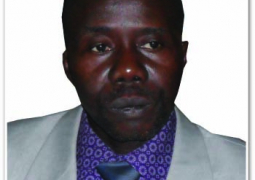The permanent secretary Ministry of Fisheries, Water Resources and National Assembly Matters has said that the
Amadou Saine made the remarks while presiding over a day’s sensitization forum for stakeholders on the activities of the Water, Sanitation and Hygiene (WASH) component of the Banafaa project.
The meeting was held at the ministry’s conference hall in
According to him, the WASH component of the Banafaa project is being implemented through sub-contracts with Gambian partner organizations, such as the Gambia Agency for the Management of Public Works (GAMWORKS) and the Trust Agency for Rural Development (TARUD).
He added that GAMWORKS has been contracted to provide construction over-sight supervision of the WASH facilities to be constructed in approximately seven fish landing and oyster processing sites within the country’s Atlantic coast area.
Mr Ousman Drammeh the Banafaa project manager said
He revealed that the project is a five-year project supported by the American people through the United States Agency for International Development (USAID).
The implementation of the project started in October 2009, and will completed in September 2014.
It is being implemented by the Coastal Resources Centre of the University of Rhodes Island in partnership with the Worldwide Fund for Nature (WWF) and the Government of the
Mr Famara Darboe, deputy director of Fisheries, indicated that there are clear signs of over exploitation of important fish stocks world-wide, and The Gambia is not an exception.
“Climate change is also threatening to take its toll on fisheries, and this plus many other challenges, including those related to international fish trade facing the sector collectively, threatens the long-term sustainability of fisheries and the contribution of the sector as a food supplier and foreign exchange earner,” he said.
He added: “Therefore an important task lies before the department to strategize and develop new approaches to fisheries, by correspondingly reducing harvests of waters and, more importantly, increased post harvest utilization of the products.”
The Fisheries official said that the reduction of post harvest loses or increasing post harvest utilization had long been identified by the department as key result area, but it constantly faced challenges to obtain the required results.



